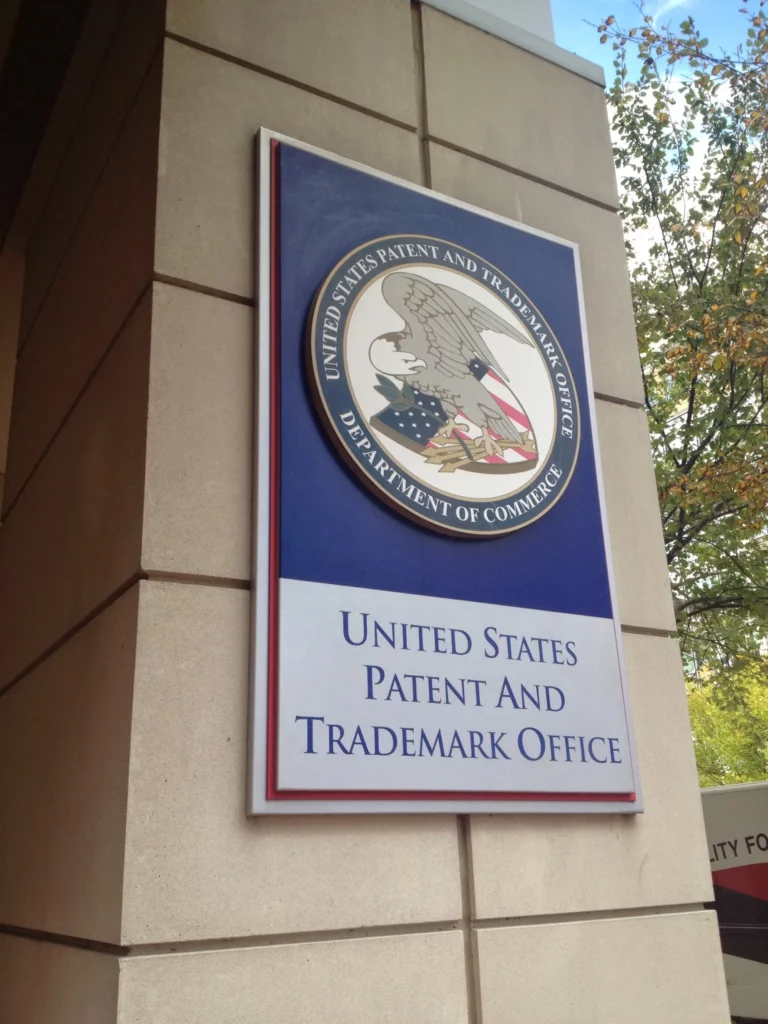Every cannabis-related legal matter has nuances that can’t be ignored, including trademarking cannabis-related products. Trademark attorney and contributing author Tyler Berger sorts it out in this week’s guest post.
There is an extreme lack of clarity on the topic of trademarks in the cannabis industry. To best understand the complications of protecting the intellectual property for your cannabis business, you must be familiar with the requirements of obtaining trademark protection at the federal level.
In order to be granted a federal trademark registration, you must prove “use in commerce.” This prevents third parties from merely “squatting” on a name or mark without any intention to use the mark, as is common with web domains. Although the United States Patent and Trademark Office (USPTO) reserves the right to further inquiry, proving “use” is typically satisfied by providing what is referred to as a “specimen.”
A specimen must show the proposed mark being used in commerce in connection with its listed goods and/or services. An example of a specimen for services is a screenshot of the website where consumers can schedule or access the service. If selling goods, you would submit a photograph of the item for sale bearing the mark. No matter what, the USPTO evaluates the sufficiency of specimens based on established federal standards.
This requirement poses a problem for anyone whose goods or services are not federally legal. Trademark Rule 2.69 (37 C.F.R. §2.69) states the following: “When the sale or transportation of any product for which registration of a trademark is sought is regulated under an Act of Congress, the Patent and Trademark Office may make appropriate inquiry…for the sole purpose of determining lawfulness of the commerce recited in the application.”
The federal prohibition on cannabis and cannabidiol (CBD) falls under two Acts of Congress: The Controlled Substances Act (CSA) and the Food Drug and Cosmetic Act (FDCA). The CSA prohibits, among other things, manufacturing, distributing, dispensing, or possessing certain controlled substances, including marijuana and CBD-containing substances. The CSA’s definition of controlled substances is somewhat of a moving target. The classification of a controlled substance is determined by government agencies (like the U.S. Drug Enforcement Administration) and these classifications are amended frequently on a legal level, and a prime example is the passing of the 2018 Farm Bill. When it came down to controlled substances, Section 297A of the Farm Bill removed “hemp” from the CSA’s definition of marijuana. As a result, cannabis plants and derivatives, like CBD that contain no more than 0.3% THC on a dry-weight basis, are no longer controlled substances under the CSA. Since such goods are not prohibited under the CSA, the use of a trademark in connection with those goods or services could be valid under the Trademark Act.
However, things aren’t that simple. While CBD complies with the Farm Bill, it can still be prohibited under the FDCA. Under the FDCA, a “drug” is partly defined as “articles (other than food) intended to affect the structure or any function of the body of man or other animals.” 21 U.S.C. § 321(g)(1). While your use may be acceptable under the CSA, it may be prohibited under the FDCA and subsequently be denied a federal trademark registration.
As a federal agency, the USPTO must comply with federal regulations and state legality is not considered. When it comes to cannabis, this means that dispensaries are unable to obtain registration, while an informational blog about cannabis will be acceptable. The connection of cannabis to the goods or services and how use will be proven is essential to whether federal trademark protection is allowed. For example, Trademark Registration Number 6381999 is validly existing for the mark WEED protected for a variety of goods and services from the brand name of cosmetics to the nonicker of an ale, none of which contain tetrahydrocannabinol (THC). POT SMOKING PALS (Reg. No. 5734387) was registered in 2019 for “clothing.” The specimen submitted for each Registration would show the goods not containing a controlled substance despite featuring the words that strongly indicate a connection to THC. Whereas, retail stores attempting to register a mark that indicates any connection with cannabis are, as of the date of this article, including the language “any cbd and hemp in the goods being featured or provided in the aforementioned services being solely derived from hemp, or being solely for use with hemp, all with a delta-9 tetrahydrocannabinol (thc) concentration of not more than 0.3 percent on a dry weight basis.”

If you operate a dispensary in a state where marijuana is legal, you can pursue alternative solutions to protecting your intellectual property. You can always obtain a trademark on a state level, and the continuous, consistent use of a mark is often afforded common law rights. While neither option is as strong as a federal trademark, they can both add merit to your business. If you absolutely need a federal registration, you could always protect the federally legal goods and services of your business. For example, you could register a trademark for clothing goods or entertainment services that are related to your dispensary.
Obtaining a trademark is subject to legality of the use on a federal level which is tied to the definition of a controlled substance. This is not a fixed standard and is subject to change depending on a range of factors. Moral of the story? Legal standards are constantly shifting and evolving, so you should consult experienced legal professionals like Berger Law Firm if you work within the cannabis industry. Your business has value, and your intellectual property is an asset that you can monetize. Prioritize the protection of your business and contact us today!
